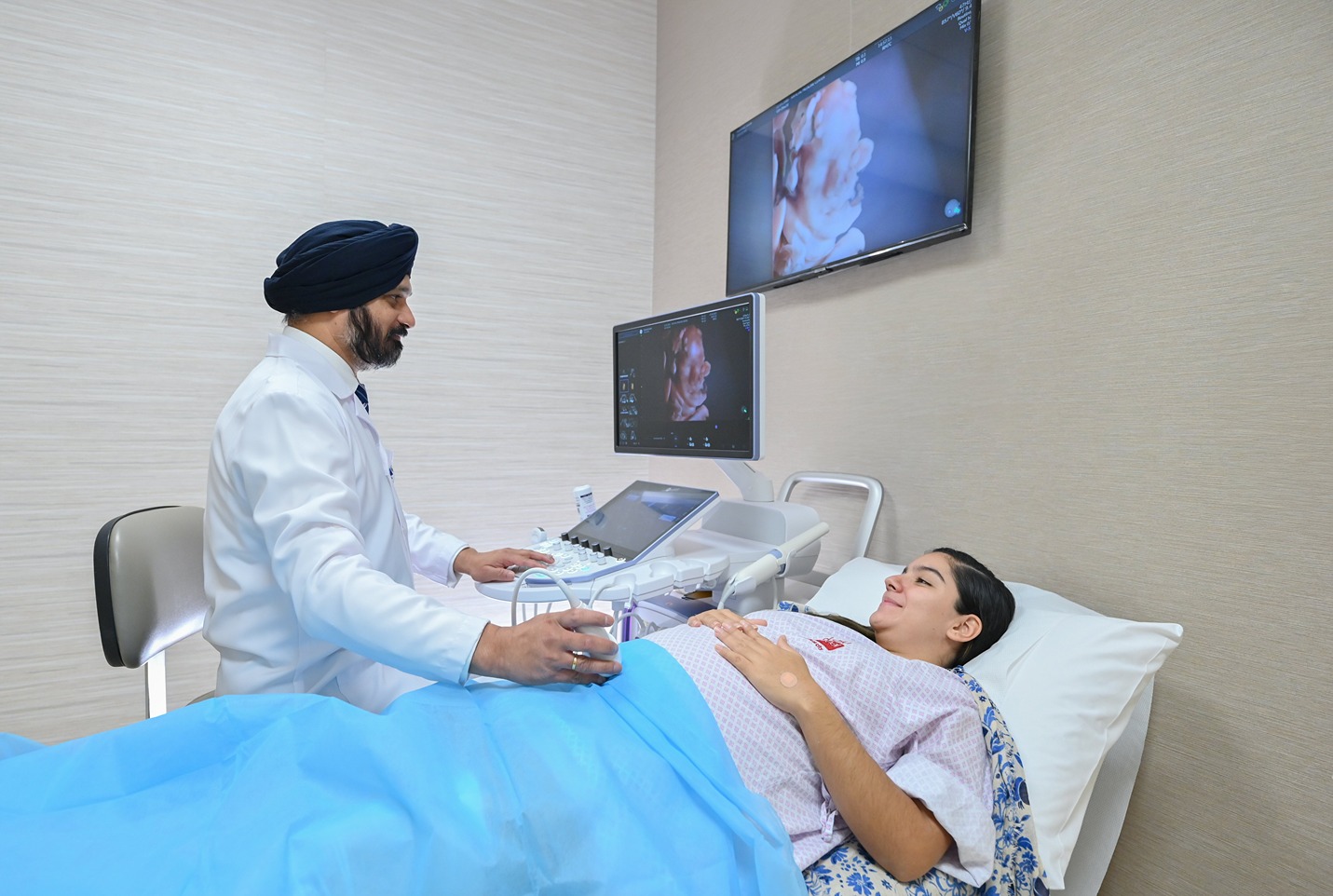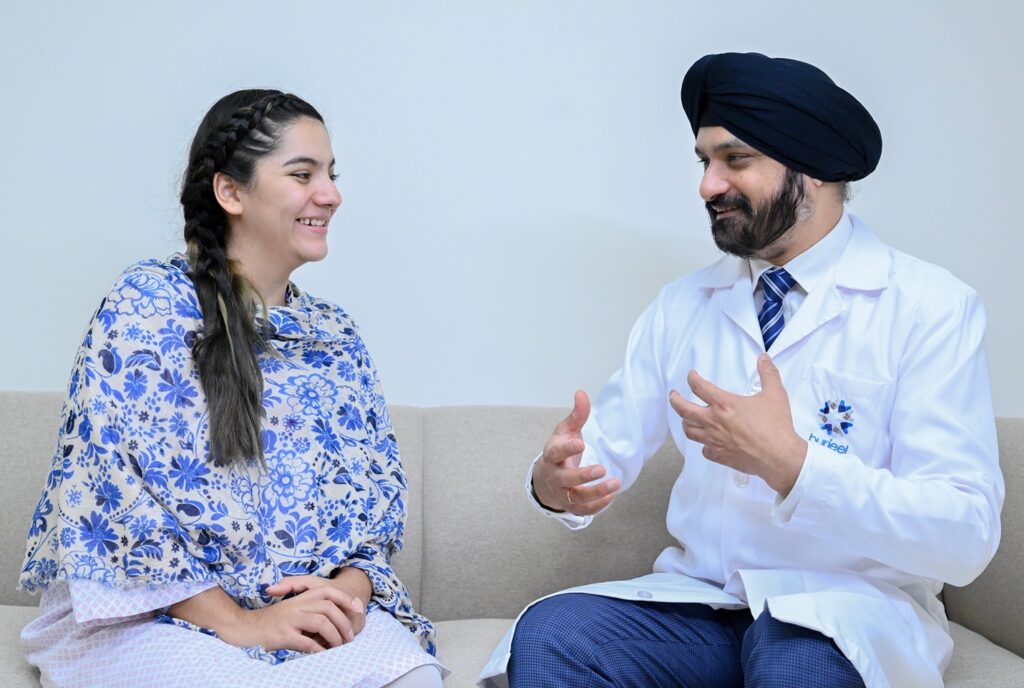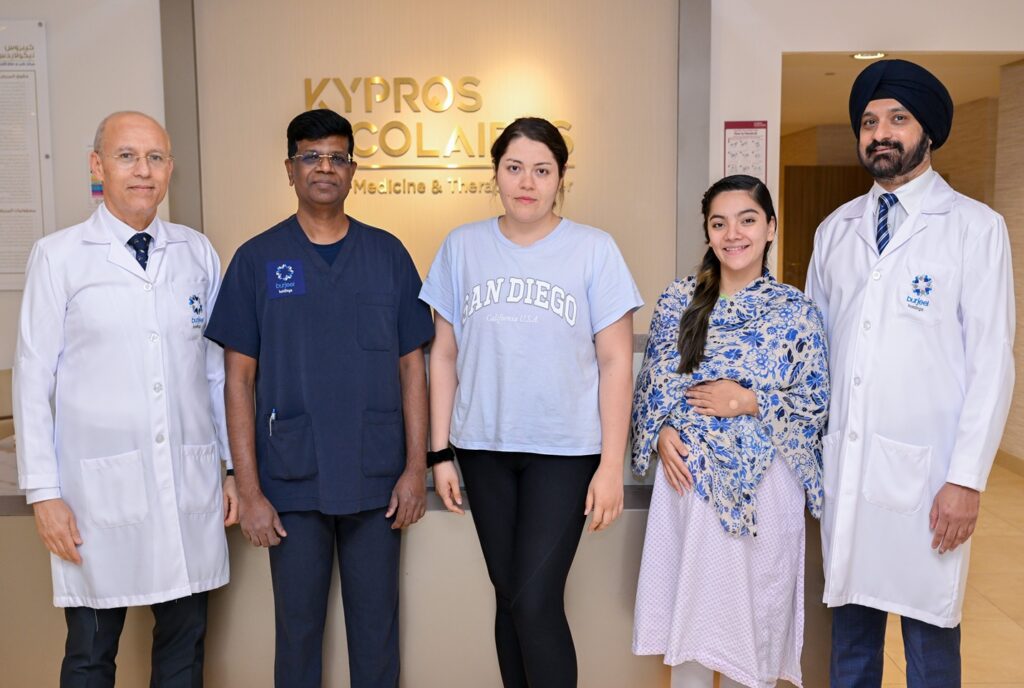In an extraordinary journey spanning continent, 26-year-old Maria Victoria travelled to Abu Dhabi to undergo the procedure when she was 26 weeks pregnant.
Abu Dhabi: Maria Victoria and her husband Gomez Sotelo were eagerly awaiting the arrival of their first child, but their joy turned to heartbreak during a routine scan at 23-24 weeks’ gestation when doctors discovered that their unborn baby had spina bifida, a birth defect affecting the spinal cord. The couple met doctors in their home country, who suggested an in-utero spina bifida repair to give their child the best chance at a healthy life. However, the main challenge before the couple was to undergo the procedure as early as possible because of the advanced gestation.
“My doctors recommended The Kypros Nicolaides Fetal Medicine and Therapy Center at Burjeel Medical City (BMC) in Abu Dhabi. After extensive research, I realized that it was important for my baby to undergo this procedure whilst inside the womb as soon as possible. This procedure would prevent damage to the brain and urinary bladder and improve my baby’s chances of being able to walk independently,” said 26-year-old Maria.
Given the urgency of the situation, her husband tried his best to accompany her, but his prior work commitments prevented him from travelling. Despite these challenges, Maria made the decision to travel to the UAE. “The weight of this new reality was overwhelming. However, I firmly placed my faith in God and embarked on this uncharted path,” she added.
With the support of doctors and dear friend by her side, Maria embarked on this extraordinary journey, hoping to provide her unborn child with the best possible care. BMC expedited Maria’s visa and other travel arrangements and in 14 days she reached Abu Dhabi for the procedure. To minimize any further delays, medical teams in the UAE and her home country collaborated to conduct essential scans and tests on Maria before she left her home country.
According to Dr. Mandeep Singh, Consultant, Fetal Maternal Medicine and Fetal Surgeon, who led the team of doctors, performing the procedure at an earlier stage is more favorable for the baby since it minimizes potential damage to the spinal cord.
“It is well understood that the spinal canal defect should be ideally closed before 26 weeks. In fact, it’s technically possible to perform the procedure up to 29 weeks, but the critical question is whether it would genuinely benefit the baby. This is precisely why it’s imperative to act as early as possible,” said Dr. Mandeep.
According to Dr. Mandeep, in-utero spina bifida repair in the womb has been shown to significantly reduce risk of deficiency in physical ability and hence improve the baby’s chances for a better future. The procedure involves operating on the fetus while still in the womb to repair the spinal defect and reduce the risk of complications that can occur with open spinal surgery after birth.
Upon her arrival at BMC, Maria was welcomed by a team of highly skilled and compassionate medical professionals who were ready to perform the delicate in-utero spina bifida repair. Apart from Dr. Mandeep, the multidisciplinary team included Dr. Mauricio Herrera, visiting physician and renowned fetal surgeon, Dr. Essam Elgamal, Consultant Neurosurgery, Dr. Rajasekhar Cingapagu, Specialist Pediatric Surgery, Dr. Ahmed Omran, Consultant, Anesthesia, and specially trained operation theatre staff.
A Challenging, Large Defect
The 5-hour long procedure was challenging due to the nature of the defect as it was a large defect. “Smaller defects typically span two to three segments of vertebral bodies. In contrast, larger defects encompass more than four segments of vertebral bodies. Closing these larger defects can pose greater challenge for neurosurgeons due to the size and deficient skin available to close the defect,” said Dr. Mandeep.
Additionally, there’s a constraint of time when performing the closure because of the constant manipulation of the uterus, risk of preterm labor and placenta separation. This limited timeframe makes the closure process more demanding, particularly in the case of large defects, which always present a significant challenge, according to the doctor. “However, the procedure went well, and we managed to close the defect successfully and there were no complications during the procedure,” added Dr. Mandeep.
Hopeful after the positive outcome, Maria expressed her deep gratitude to the medical team at BMC, the UAE leadership and the organization that made her journey possible, and her steadfast friend and family who offered support throughout this challenging ordeal.
After successfully undergoing the recovery process at BMC, Maria has returned to her home country for delivery.




